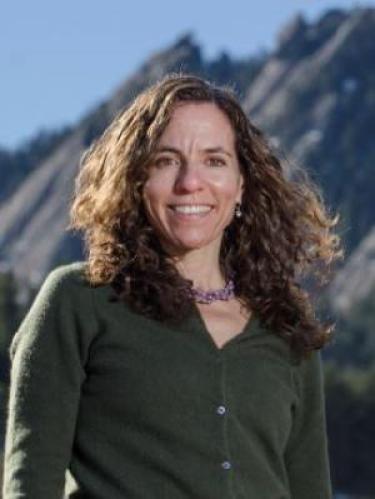Editor’s note: For the next several weeks in “Notes from a great conversation,” members of the Academic Futures subcommittees will be updating the campus on their early work to identify key themes and transformative ideas submitted by the campus community during the fall semester.
This week, Sarah Krakoff of the University of Colorado School of Law offers thoughts from the Academic Futures subcommittee on keeping the public in public higher education.

Professor of Law Sarah Krakoff
What does it mean to be a public research university today, and what should it mean in the future? Our subcommittee is focused on how we continue to be an institution that serves the public good. There is a lot we do right. We look, for example, at the world-class scholarship at CU Boulder in areas all across the campus, from the hard sciences to the humanities, music and art, as a testament to the value of scholarship and creative work that serves the public.
As we look to the future, we find inspiration in the ideas brought forward by faculty, staff and students from all parts of campus. Some focus on creating space for faculty across disciplines to work together on the world’s most pressing problems, others on engaging our students in research questions that deliver value to our society. An underlying theme is the importance of maintaining the independence of faculty and students to do this work free from external pressures.
For our students, keeping the public in public education means, in short, accessibility, diversity and preparedness. It’s important to keep education affordable and open. Our student body should reflect our society, in terms of class, race, gender, ethnicity and social status. We want our students to become publicly engaged. Our obligation to future students is to equip them with habits of mind and tools of inquiry that are much broader than market-ready job skills.
Some specific and compelling ideas we’ve heard along these lines include: creating debt-free pathways to graduation for all students with financial need; highlighting the importance of a humanities-based curriculum regardless of career path and bolstering community-engaged research and teaching opportunities for students.
Finally, moving into the future as a public university has budget implications. We feel strongly CU Boulder and its advocates should continue to fight for public funding for a public university and make a case for greater investment of public funds. We also remain committed to ensuring the independence and accuracy of scholarship regardless of funding sources.
If we lose public higher education, our society loses as well. As much as anything, Academic Futures is a creative way to invest CU’s public mission and public identity with new energy, purpose and commitment—the kind of bedrock foundation from which we can pursue new forms of research, teaching, scholarship, learning and creative work.
Sarah Krakoff,
Professor of Law at Colorado Law



